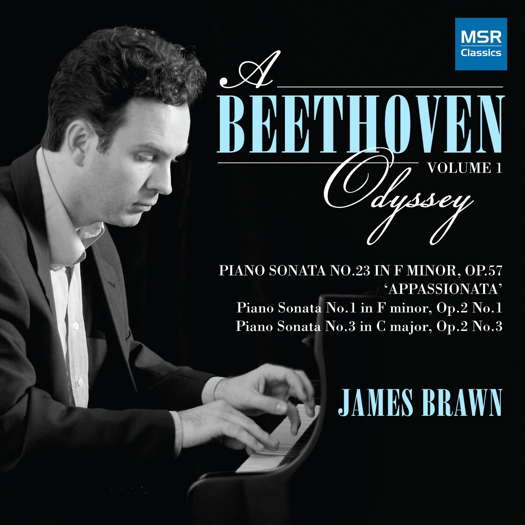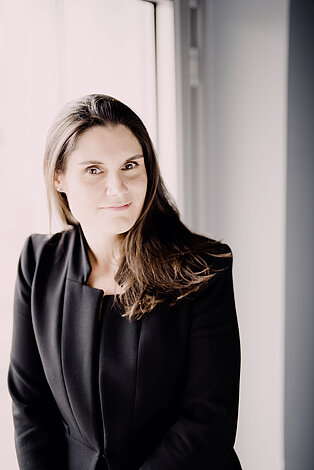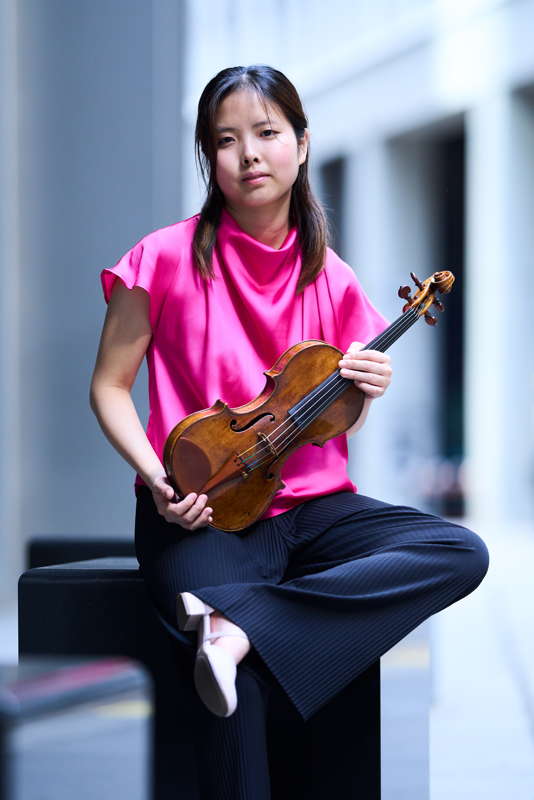 SPONSORED: CD Spotlight. Masterfully Controlled - James Brawn's Beethoven Odyssey impresses Andrew Schartmann.
SPONSORED: CD Spotlight. Masterfully Controlled - James Brawn's Beethoven Odyssey impresses Andrew Schartmann.
All sponsored features >>
An Engaging Partnership
MIKE WHEELER is impressed by Hana Chang, Delyana Lazarova and Sinfonia Viva, playing music by Fanny Mendelssohn, Mozart, Caroline Shaw and Beethoven
Following Sinfonia Viva's one-hour Sunday afternoon concert in January, the orchestra was back with a full evening's programme, and Delyana Lazarova, recently appointed Principal Guest Conductor with the BBC Scottish Symphony Orchestra, on the podium - Royal Concert Hall, Nottingham, UK, 7 March 2025.
Like Clara Schumann, Fanny Mendelssohn has been overshadowed by her more famous male relative, but as her Overture in C shows, there is no reason for her not to be acclaimed in her own right. Yes, there are family resemblances, particularly with Felix's overture Calm Sea and Prosperous Voyage, but Fanny's work is by no means diminished by the comparison. The serene opening strings-and-woodwind dialogue was a perfect foil to the scurrying figures that took us into the fast music, typical of the performance's balance between expansive lines and bustling energy.

Delyana Lazarova.
Photo © Marco Borggreve
Hana Chang was the soloist in Mozart's Violin Concerto No 4 in D. The orchestra's crisp opening was well matched by her neat, deft, first entry, which set the tone for an engaging partnership. She projected the cadenza as though exploring as much of the music's possibilities as she could tease out. The second movement had a dancing quality, like a reflective kind of minuet. There was abundant poise and elegance in the third movement's rondo theme, and bouncy, nimble playing all round in the quicker episodes.

Hana Chang.
Photo © 2023 Kaupo Kikkas
Caroline Shaw's Entr'acte, originally for string quartet and later re-scored for string orchestra, is something of a contemporary classic. As Delyana Lazarova commented in her spoken introduction, it is not a piece that grabs you, but which 'invites you to come'. Prompted by hearing the Minuet and Trio from Haydn's F major String Quartet, Op 77 No 2, it explores some extraordinarily varied sonorities, including pulsing chords, the whispered sounds of bows just skating lightly over strings, a sonorous pizzicato section and whispy harmonics. It leads us from one section to another with no obvious links, but with no sense of jarring jump-cuts, either. The players were obviously completely immersed in the piece, and principal cellist Deirdre Bencsik brought dignified calm to her strummed solo epilogue.
And then Beethoven brought a box of party-poppers in the form of his Symphony No 8. The first movement set off at a good brisk tempo, and we were left to admire his art of doing so much with so little. The recapitulation, buried deep in the cellos and basses while the rest of the orchestra tries to drown it out, made its comic point, as did the soft ending following a fierce climax. Pert ticking characterised the second movement, as the butter-wouldn't-melt theme was from time to time savaged briefly by swarms of angry wasps. Beethoven's heading for the third movement carefully points out that it is simply in minuet tempo, not an actual minuet, and Delyana and the orchestra took the hint. In the trio section, the comic incongruity of the spiky cello line against the smooth horn duet was somewhat played down delivered as a solo line – Deirdre Bencsik, again. In the finale we just have to take the rough with the smooth, as Beethoven lets himself off the leash for a good run around. Conductor and orchestra happily joined him in the naughty corner, and rose magnificently to the challenge.
Copyright © 16 March 2025
Mike Wheeler,
Derby UK





